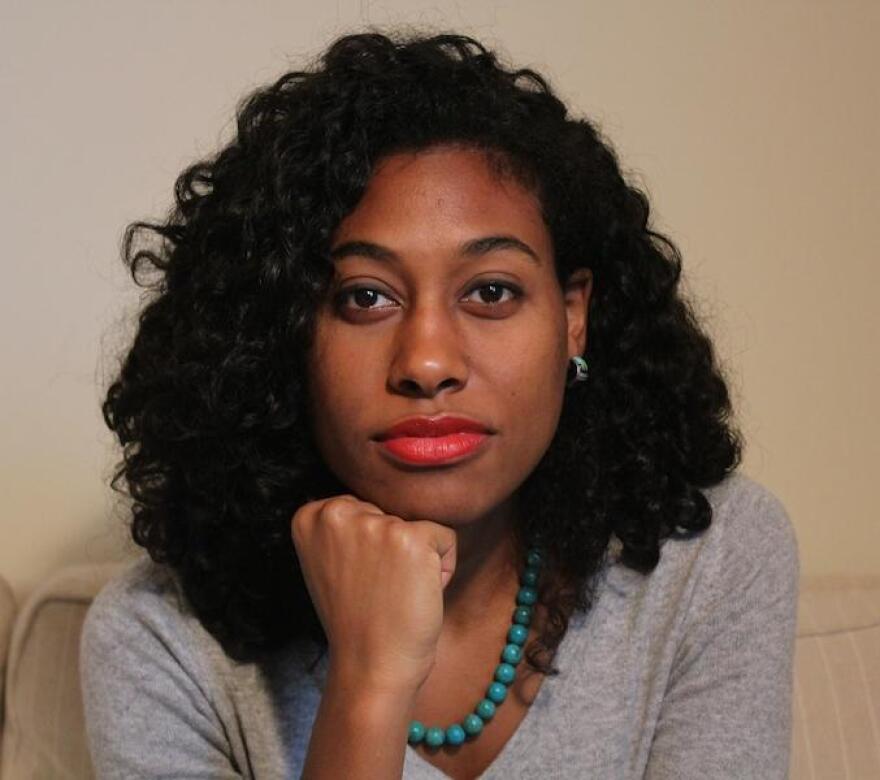During his campaign for governor, Ralph Northam appeared in a TV ad, holding an African-American baby. The message was that Dr. Northam – a pediatric neurologist – cares deeply for kids, regardless of race. That made the picture in his medical school yearbook doubly shocking, but a fellow doctor said that that racism is not uncommon in the medical profession.
As a young doctor, Irene Mathieu was dismayed to see the photo in Ralph Northam’s yearbook showing two men in costumes – a black-faced minstrel and a member of the KKK.
" I think it really just shows a deep and pervasive ignorance that is really sad in general to have in our society, but especially somebody who’s graduating from medical school and planning to take care of children," Mathieu says.
She figures people just don’t realize how painful the past can be for African-Americans – the portrayal of people with brown skin as ignorant, laughable, less than human. But Dr. Damon Tweedy, author of Black Man in a White Coat, told NPR that physicians are often biased, just like everyone else.
" Being great in chemistry and physics and biology and getting into medical school doesn’t in any way insulate you from all of the things that impact society and impact the way that you see people and the biases that you can sort of harbor," he explains.
For example, in 2016 a University of Virginia study showed a significant number of white medical students and residents thought their black patients were biologically different from whites –that their skin was thicker and that their nerve endings were less sensitive, two false notions that may have led them to treat pain less aggressively in people of color. When she worked at one of the nation’s top children’s hospitals in Philadelphia, Mathieu found racial bias even extended to kids.
"There are studies that show black children who come to the emergency room get less treatment for things like abdominal pain and even fractures which we can all intellectually understand are a very painful thing to experience," says Mathieu.
We all have it, whether we like it or not....
It’s not that doctors actually want black children to suffer, but they may act on what’s known as implicit bias – unconscious feelings about certain people.
“We all have it, whether we like it or not, and not necessarily around only race but around a lot of things. Part of the way that our brains are wired as humans is to make quick decisions, and to have biases.”
And studies show that we lean on those biases more when we’re tired or burned out – conditions often suffered by physicians in busy emergency rooms.
“The feelings of negativity or the slight pro-white bias that residents had toward pediatric patients was about equal to the biases they had toward adult patients.”
On the flip side, Mathieu – who chairs the Equity and Inclusion Committee at UVA’s Department of Pediatrics – says patients have their own biases.
“It’s a little bit hard to parse out what is racism and what is sexism and what is the two combined, but I’ve certainly had a lot of cases where even after introducing myself as the physician, a family will mistakenly address me as the nurse, or they’ll look to the white male person in the room as the authority, even if I am the most senior physician in the room at the time.”
And there’s data showing some African-American patients may mistrust their have white doctors.
“Patients of color tend to both show up more when there is a physician of color and also to follow the advice of physicians of color more than they follow the advice of white physicians, so it seems like there’s a difference in trust there.”
She thinks the problem could be addressed better through medical education and the admission of more people of color to med schools.
“Part of what motivates me in pediatrics is the look on so many kids’ faces when they realize that I’m really their doctor, and I look like them.”
Medical students must also be taught more about the history of their universities – to know, for example, that the Medical College of Virginia – now VCU – actually robbed the graves of African-Americans in the 19th and early 20th centuries so students could dissect them.
This report, provided by Virginia Public Radio, was made possible with support from the Virginia Education Association.



